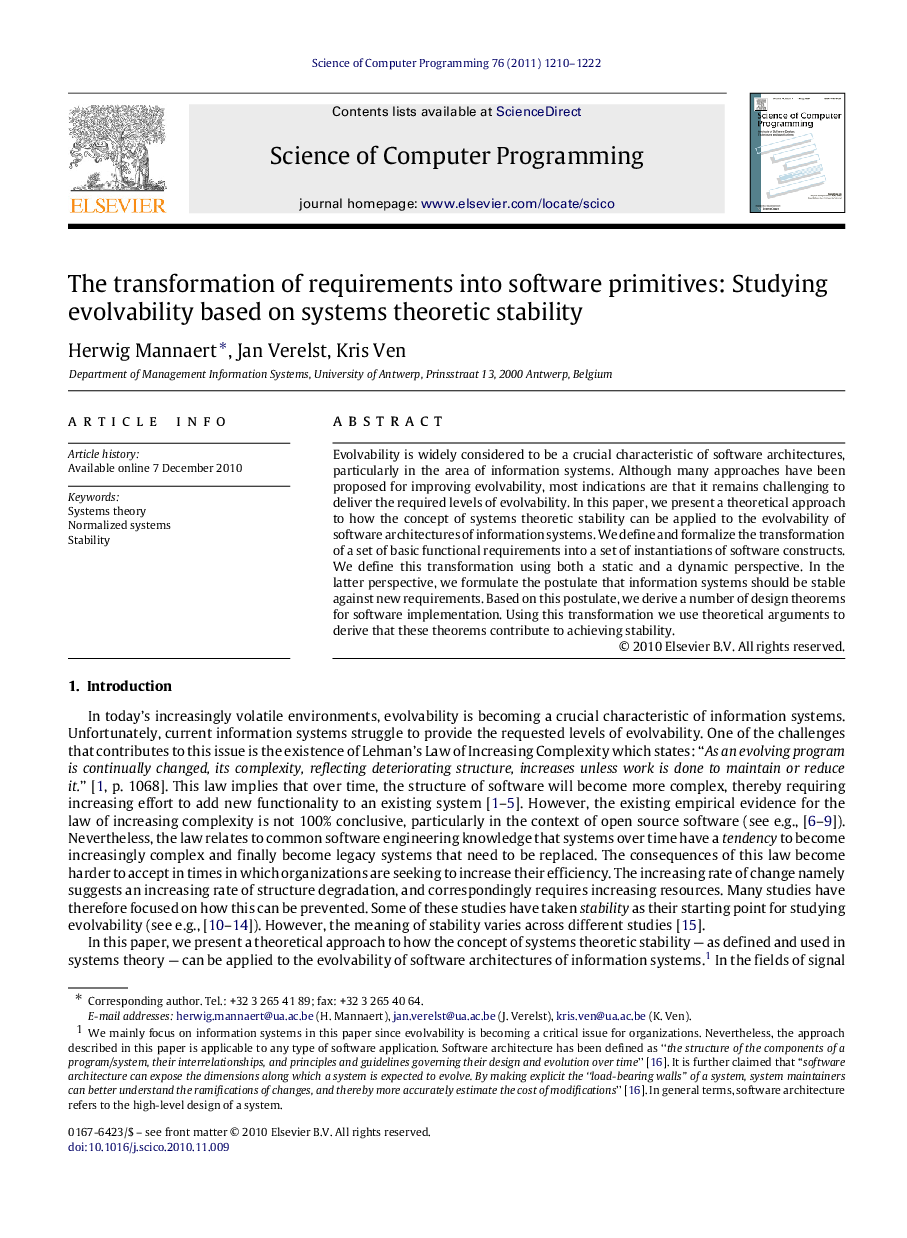| Article ID | Journal | Published Year | Pages | File Type |
|---|---|---|---|---|
| 433480 | Science of Computer Programming | 2011 | 13 Pages |
Evolvability is widely considered to be a crucial characteristic of software architectures, particularly in the area of information systems. Although many approaches have been proposed for improving evolvability, most indications are that it remains challenging to deliver the required levels of evolvability. In this paper, we present a theoretical approach to how the concept of systems theoretic stability can be applied to the evolvability of software architectures of information systems. We define and formalize the transformation of a set of basic functional requirements into a set of instantiations of software constructs. We define this transformation using both a static and a dynamic perspective. In the latter perspective, we formulate the postulate that information systems should be stable against new requirements. Based on this postulate, we derive a number of design theorems for software implementation. Using this transformation we use theoretical arguments to derive that these theorems contribute to achieving stability.
Research highlights► We apply the concept of systems theoretic stability to software evolvability. ► We formalize the transformation of requirements into software. ► We postulate that information systems should be stable against new requirements. ► Based on this postulate, we derive four design theorems for software implementation. ► Using the transformation, we prove that these theorems contribute to stability.
